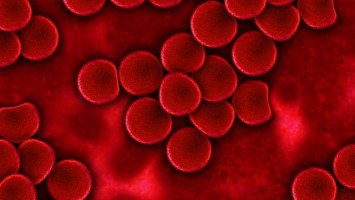
Findings from a series of studies conducted in mice, human tissues, and healthy volunteers suggest that a ketogenic diet can enhance the effectiveness of CAR T-cell therapy.
The results point to β-hydroxybutyrate (BHB), a substance our bodies produce when we consume a ketogenic diet, as a driver of increased CAR T-cell function against cancer.
In CAR-T therapies, a patient’s own immune cells are removed, genetically engineered, and infused back into the body where they recognise and kill cancer cells.
The FDA has approved several CAR-T therapies for treating a variety of blood cancer types.
“Our research found that a ketogenic diet can enhance CAR T-cell function, and we further found that BHB, one of the important metabolites produced in response to a ketogenic diet, plays a major role in mediating this effect,” said Shan Liu, PhD, a postdoctoral researcher in the Perelman School of Medicine at the University of Pennsylvania in Philadelphia and one of the study’s lead authors.
“Given that about two-thirds of patients who undergo CAR-T therapy either do not see a response or eventually relapse, a dietary intervention that could be implemented relatively easily along with CAR-T therapy would be very attractive.”
Diet is known to influence health in general, as well as patients’ responses to various cancer treatments.
For example, previous studies have shown that a high-fibre diet can affect the efficacy of a type of immunotherapy called immune checkpoint blockade.
The new study is the first to examine how specific dietary interventions modulate the anti-tumour effect of CAR T-cell immunotherapy.
Researchers first tested several different types of diets including high-fibre, high-fat, high-protein, and ketogenic diets in mice with B-cell lymphoma, and found that mice fed a ketogenic diet showed the best tumour control and overall survival after CAR-T therapy.
They then found that BHB was the key metabolite enriched following ketogenic diet feeding and that mice fed a normal diet but given BHB supplementation showed improved CAR T-cell expansion and better tumour control than mice that were not given BHB supplementation.
Additional studies suggested that BHB increases CAR T-cell function by providing a more efficient source of energy compared with glucose, the typical fuel source for most cells.
When the researchers used T cells from patients with lymphoma to manufacture CAR T cells, they found that BHB added to cell culture medium increased T-cell expansion and function of mitochondria, the energy factory of the cell.
In addition, the team retrospectively analysed the BHB levels in blood samples from 17 patients who received CAR-T treatment for large B-cell lymphoma and found that higher BHB levels were correlated with greater CAR T-cell expansion.
To assess the potential impacts of taking BHB supplements, the researchers recruited healthy volunteers and analysed their T-cell function before and after consuming a BHB supplement.
The results suggested that BHB enhances the function of T-cell mitochondria, further bolstering the hypothesis that BHB enhances T-cell activity through its effects on energy processing.
Since the research was largely conducted in the laboratory and in mice and did not involve interventions with any patients undergoing CAR-T therapy, researchers caution that further studies will be required to determine the clinical significance of the findings.
“At this point, we do not recommend adopting a ketogenic diet or taking BHB supplements during CAR-T therapy,” said Dr. Liu. The research team will soon start a clinical trial in patients with lymphoma receiving CAR-T therapy to study the effect of BHB supplementation in the clinic.